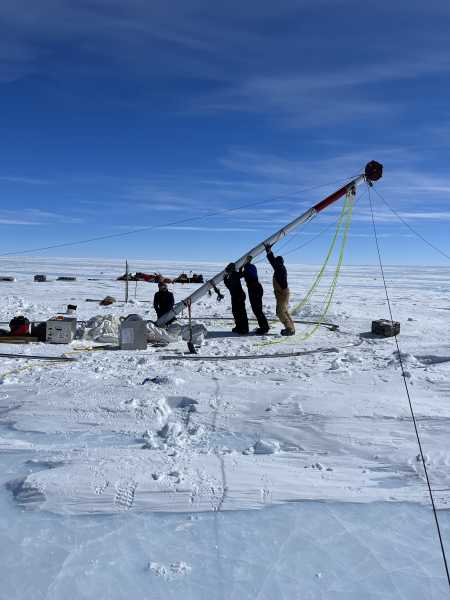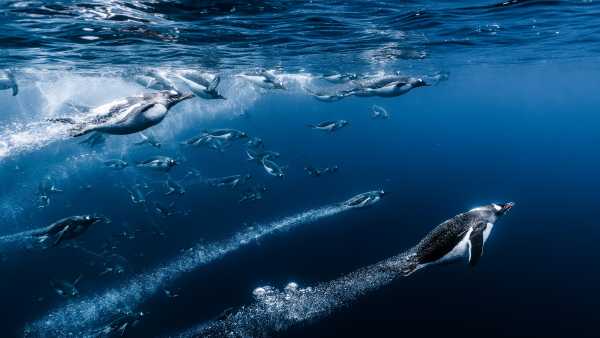
This image of scurrying penguins in Antarctic waters has been shortlisted for the 2025 Ocean Photographer of the Year Wildlife category. (Photo: Romain Barats/Ocean Photographer of the Year)
A rocket jellyfish, a majestic Komodo dragon and a dangerous encounter with a surfer are just some of the impressive images shortlisted for the award. The Impact and Hope categories showcase the diversity of marine life and the human connection to the ocean.
The winners of the competition, organised by Oceanographic magazine and Blancpain, will be announced in September. All the finalists' works highlight the importance of preserving natural heritage.
“In the face of a deepening biodiversity crisis, ocean photography is of key importance,” said Will Harrison, director of the awards. “These images are not only aesthetically pleasing – they provide a vivid picture of what we stand to lose and a reminder of the urgency of protective action.”
You might be interested in
-
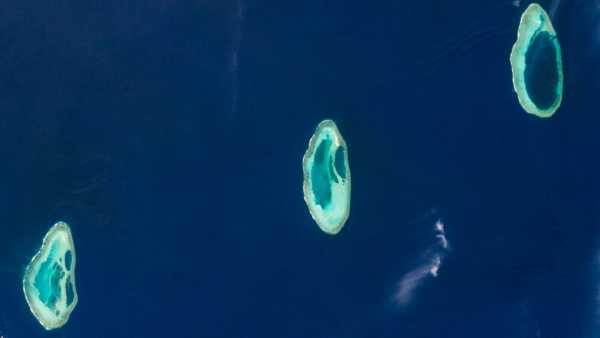
Three ancient atolls off the coast of Australia sparkle like tropical gems.
-
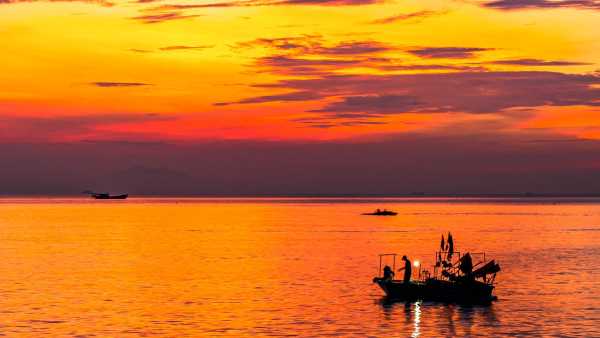
Latest data: 96% of the world's oceans will experience abnormal heat in 2023.
-
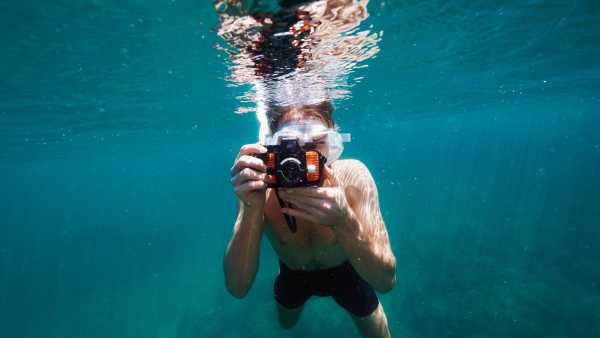
Top Underwater Cameras 2025: Capturing Sea and Freshwater Creatures
Here are some of the amazing works from the nominees.
Synchronicity in water
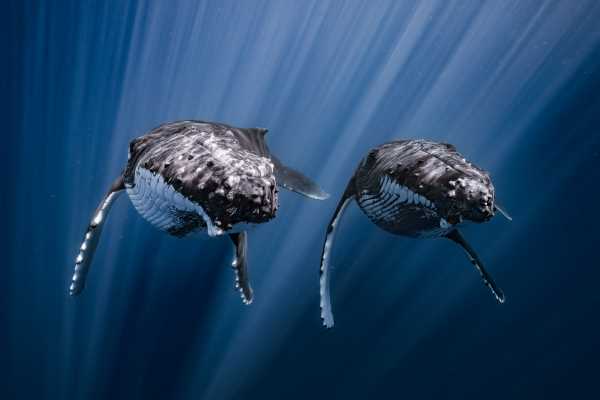
Juvenile finalist Yuka Takahashi captured the synchronous movement of whales in the sun off the coast of French Polynesia. “These individuals are always together, and I was lucky enough to capture their unity,” the photographer shared. “The image conveys their deep connection and inquisitive nature.”
Cooling for the giant
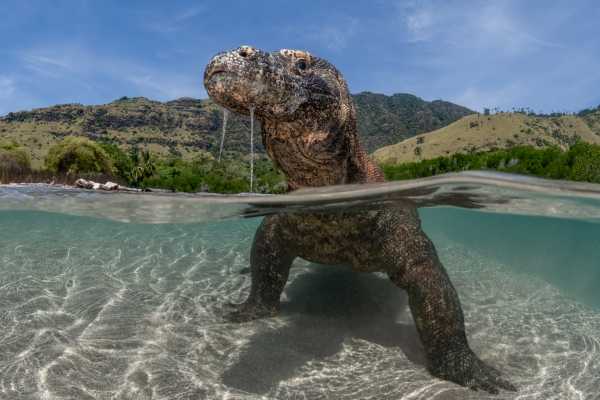
Wildlife finalist Suliman Alatiki showed a Komodo dragon (Varanus komodoensis) on the coast of Indonesia. The cold-blooded lizards use water to regulate their temperature in the summer and also migrate along the seabed in search of food and mates.
The Price of Progress
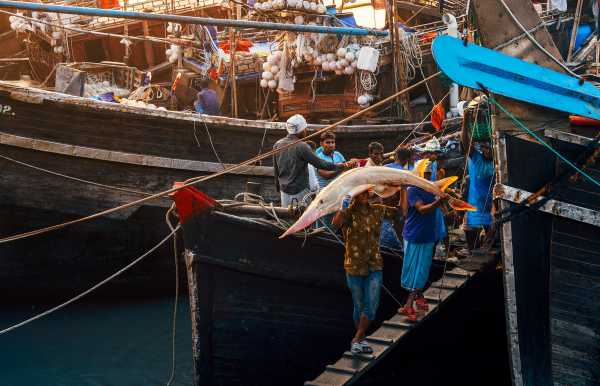
Natnatcha Chaturapitamorn was shortlisted for the Impact category with this image of catch being unloaded in Bangladesh at dawn. “The presence of endangered species amidst this chaos is a reminder of the importance of conserving marine biodiversity,” the photographer explained. “Protecting vulnerable populations is critical for both the environment and the sustainability of fishing communities.”
A hopeless situation
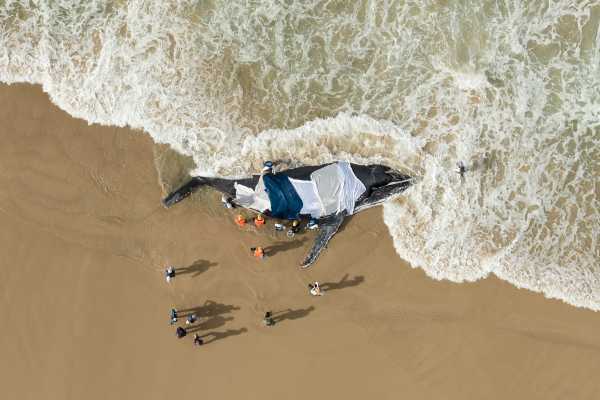
On July 1, photographer Craig Parry captured aerial footage of rescue efforts at a stranded whale in Australia. Rescuers and volunteers struggled for 15 hours to no avail. “Despite the tragic outcome, the combined efforts were a shining example of human solidarity,” said Parry, whose work was shortlisted for the Human Connections category.
Living whirlpool
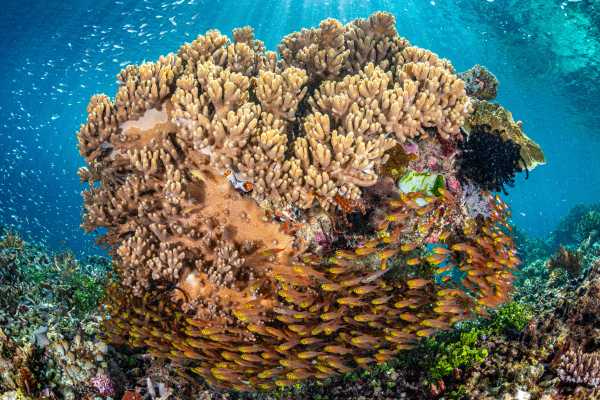
Hope finalist Kim Hyun-min captured a coral colony with juveniles in Indonesia. The vibrant colours indicate no bleaching, giving the ecosystem a chance to recover. “This shot is a symbol of what can still be preserved for future generations,” the photographer said.
Alien Guest
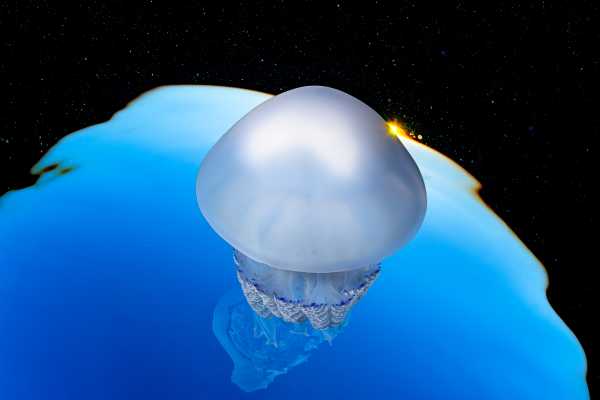
Fine Art finalist Tony Bertrand Regas enhanced the jellyfish's resemblance to a spacecraft by photographing it in Spain. “I wanted to convey the rocket analogy using a fisheye lens at dawn. The Snell's window phenomenon helped create the illusion of space,” he explained.
SEE ALSO
— Creepy crocodile and icy 'guts' among nature photography contest winners
—”Cosmic Fire” and Earth Ice: The Best Works of the “Photographer of the Milky Way 2025” Competition
—15 Amazing Wildlife Shots of 2024
The elements in action
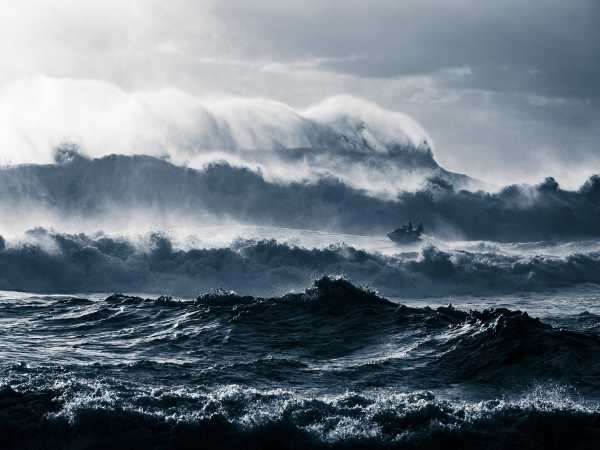
Adventure finalist Ben Thouar captured the rough seas of Nazaré, Portugal. Despite the dangerous conditions, two surfers braved the elements. “Shooting among the giant waves was challenging, but the results were worth it,” the photographer noted.

Perry ThalerSocial MediaIntern
Perry Thaler is a Live Science intern. Her interests include space, technology, the physical sciences, and renewable energy and climate change. She studied astronomy and economics at Cornell, worked at NASA in technology policy, and researched paleomagnetism at Harvard. She is currently pursuing a master's degree in journalism at NYU and has written for ScienceLine, Space.com, and Eos.
You must verify your public name before commenting.
Log out of your account and log back in to change your display name.
Logout Other materials
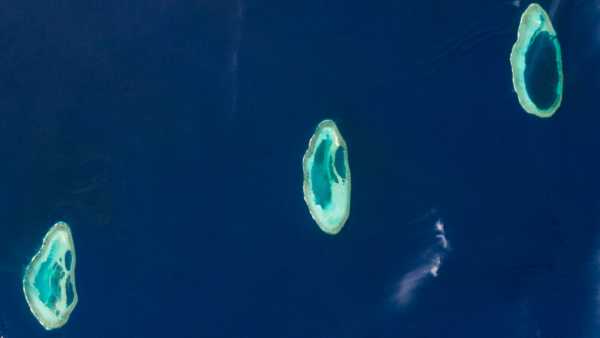
A perfect trio of prehistoric atolls shines like tropical jewels off the coast of Australia.
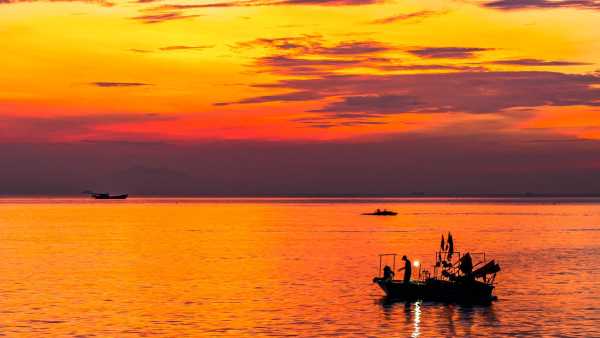
According to a new study, 96% of the world's oceans will experience extreme heat in 2023.
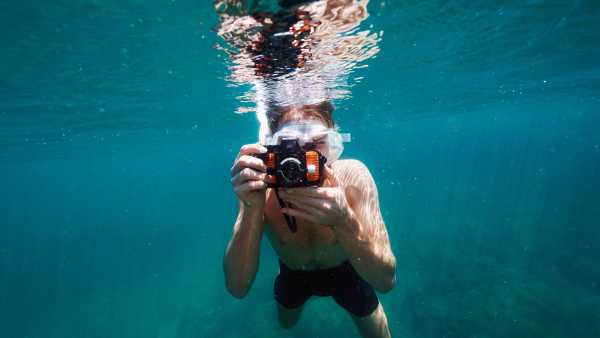
Best Underwater Cameras 2025 – Capture Marine and Freshwater Animals and Fauna
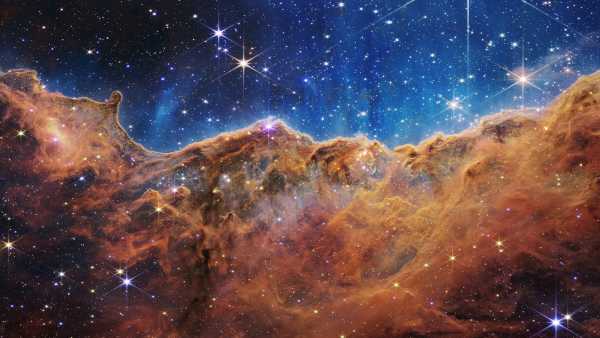
28 Stunning Photos of Nebulae That Capture the Beauty of the Universe
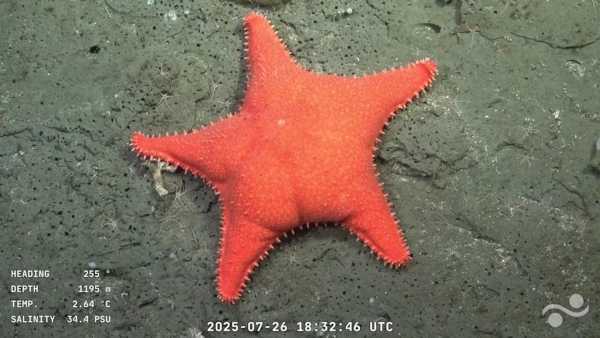
'Big starfish,' 'little sweet potato' and dozens of previously unseen species recorded during deep-sea expedition off Argentina
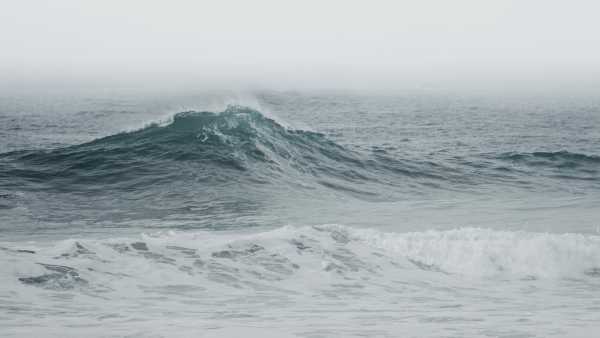
Data from the North Sea shows that 'rogue waves' can reach heights of 65ft, but they are not 'anomalous events'. Latest news from the Rivers & Oceans section
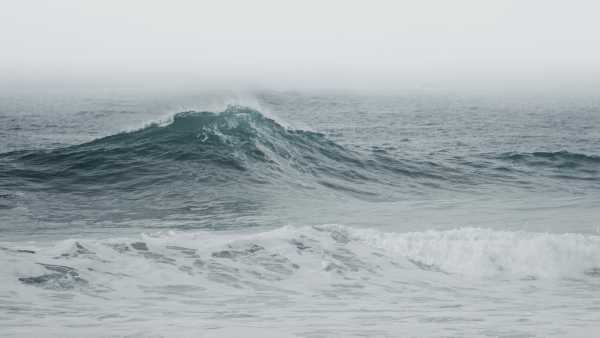
Data from the North Sea shows that “rogue waves” can reach heights of 65 feet, but they are not “anomalous events”.
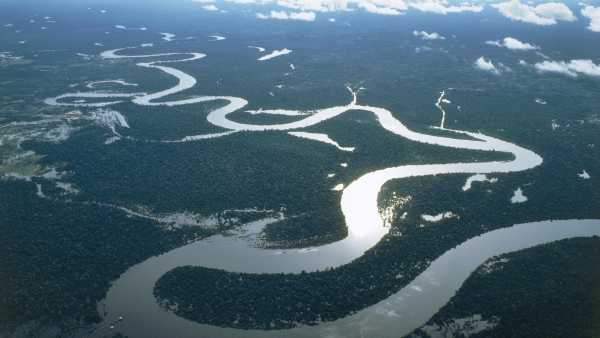
Even a small slowdown in key Atlantic currents poses a 'massive risk' to tropical forests.
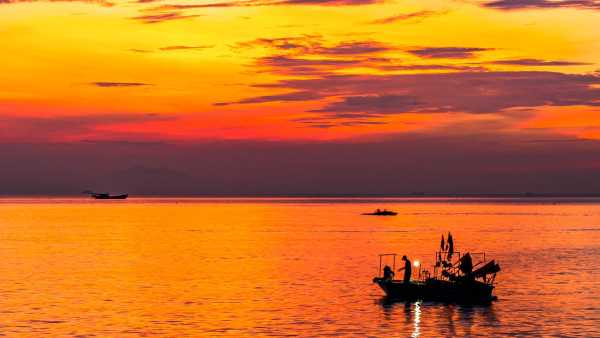
According to a new study, 96% of the world's oceans will experience extreme heat in 2023.
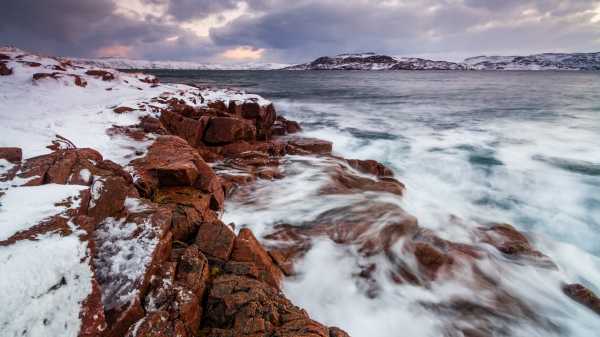
Collapse of key Atlantic currents could be prevented by newly discovered backup system, study finds
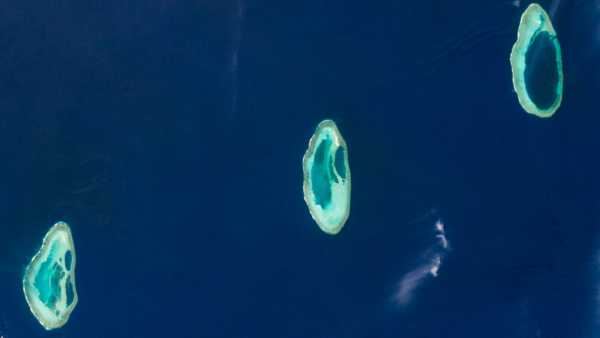
A perfect trio of prehistoric atolls shines like tropical jewels off the coast of Australia.
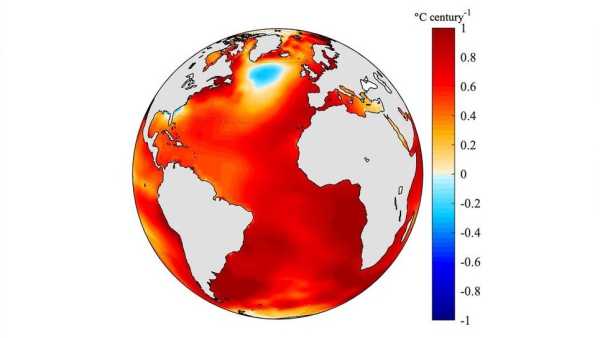
Mystery of Atlantic Ocean Cold Spot Finally Solved. Latest News
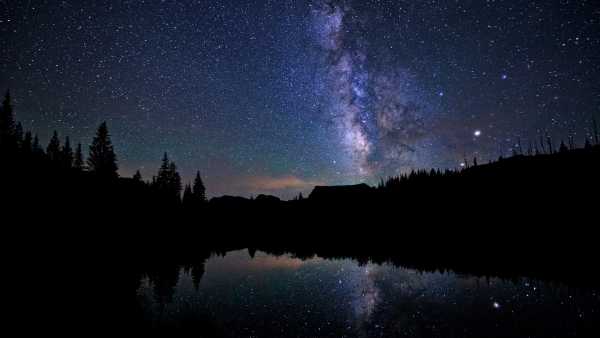
Rare 'Black Moon' Rising This Weekend: What Is It and What Can You See?

Secret X37-B space plane to test quantum navigation system scientists hope will one day replace GPS
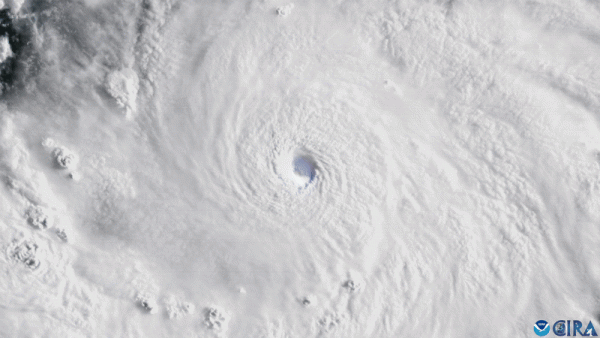
Watch as Hurricane Erin reaches Category 5 strength in lightning strikes.

A gene that differs between humans and Neanderthals could shed light on the species' extinction, a study in mice suggests.
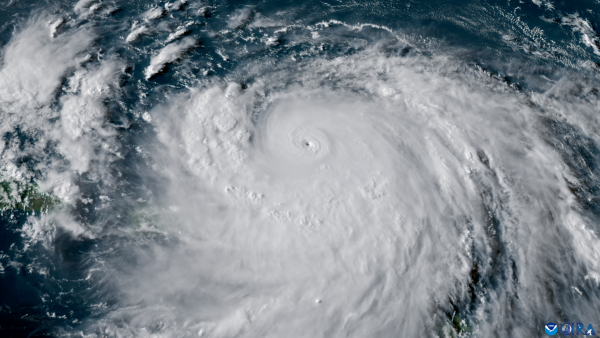
Forecasters warn Hurricane Erin could bring 100-foot waves to the East Coast this week.

OpenAI ChatGPT agent can take control of your computer, performing tasks on your behalf. But how does it work and what's the point? LATEST
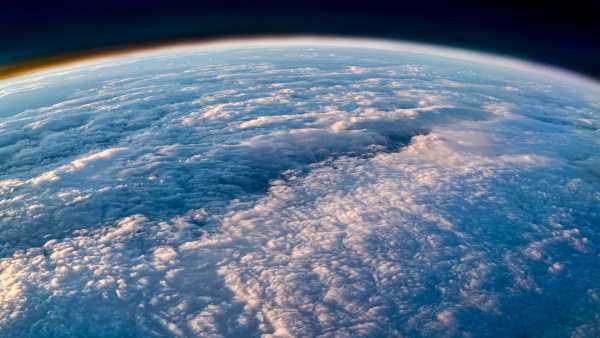
1Microscopic devices powered by sunlight could explore a mysterious region of Earth's atmosphere.
Live Science magazine is part of the Future US Inc. media group, an international digital publishing house. Details on the corporate website.
- About Us
- Contact Future experts
- Terms and Conditions
- Privacy Policy
- Cookie Policy
- Accessibility Statement
- Advertise with us
- Web Notifications
- Career
- Editorial Standards
- How to present history to us
© Future US, Inc. Full 7th Floor, 130 West 42nd Street, New York, NY 10036.
Sourse: www.livescience.com




